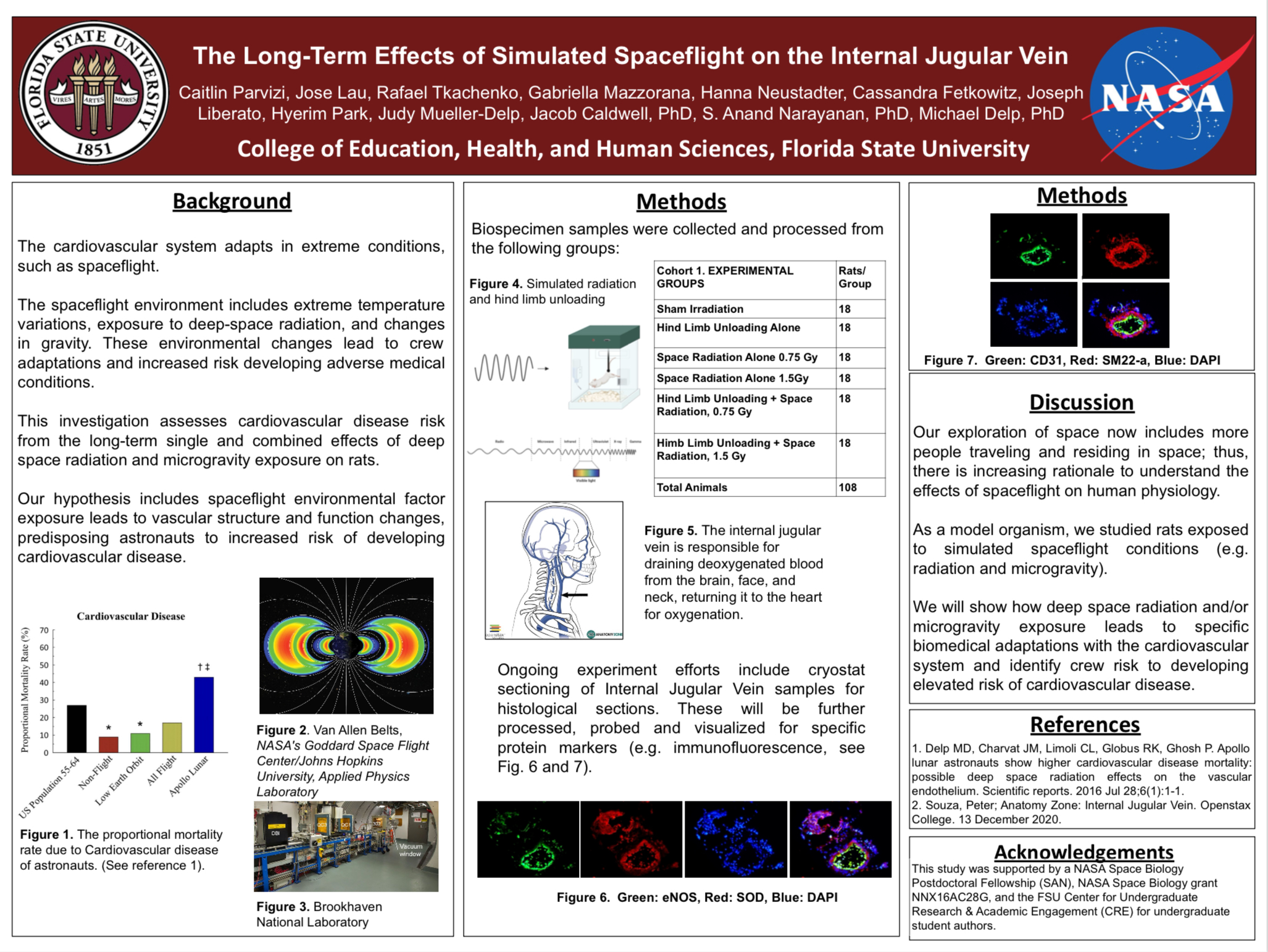Research Symposium
24th annual Undergraduate Research Symposium, April 3, 2024
Caitlin Parvizi Poster Session 5: 4:00 pm - 5:00 pm/77

BIO
Caitlin Parvizi is a 3rd year Biochemistry major from Palm Harbor, Florida. Throughout her time at Florida State, Caitlin has been involved in various space-medicine related research projects under the direction of Dr. Narayanan, and is currently working on her Honors in the Major Thesis Project, titled "Spaceflight Effects of Lunar Gravity and Microgravity on Cardiovascular and Reproductive Physiology." Her career aspirations involve attending medical school to become a physician.
The Long-Term Effects of Simulated Spaceflight on the Internal Jugular Vein
Authors: Caitlin Parvizi, Sunny NarayananStudent Major: Biochemistry
Mentor: Sunny Narayanan
Mentor's Department: Department of Health, Nutrition, and Food Sciences Mentor's College: College of Education, Health & Human Sciences Co-Presenters:
Abstract
Astronauts' exposure to the unique spaceflight environment induces physiological adaptations, including affecting cardiovascular function. These adaptations occur due to microgravity and space radiation exposure. For example, the internal jugular vein (IJV), a major conduit for cerebral venous outflow, is involved with maintaining and regulating brain blood supply. Recent observations from spaceflight missions suggest the IJV is susceptible to spaceflight-induced adaptations. To investigate the mechanisms and specific effects of microgravity and radiation on the IJV, we conducted a study examining the long-term effects of single and combined simulated deep-space radiation and microgravity exposure on rats. Our study aimed to assess changes in IJV structure and function, as well as biochemical pathway alterations (e.g., endothelial nitric oxide synthase [eNOS] expression, oxidative stress) potentially caused by simulated spaceflight exposure. IJV samples were collected and processed for immunofluorescence protein analysis using cryostat sectioning. The findings from this study will contribute to our overall understanding of cardiovascular adaptations associated with spaceflight that are occurring with our astronauts, as well as provide insight for future countermeasure development to improve crew health outcomes during long-duration space missions.
Keywords: Space, cardiology, health, medicine


